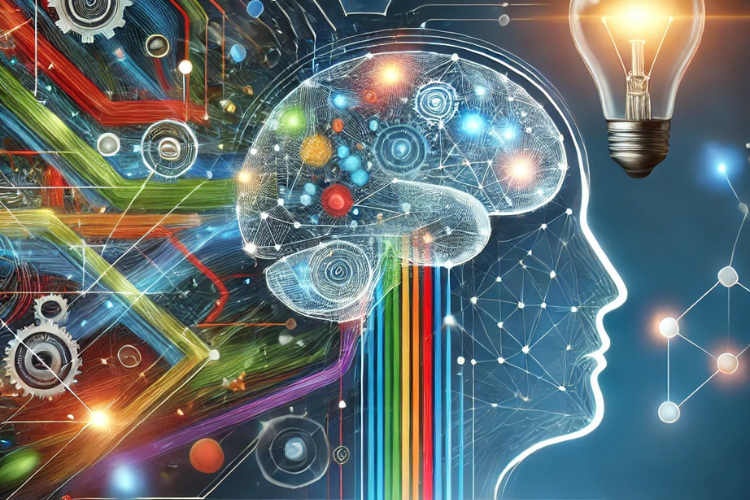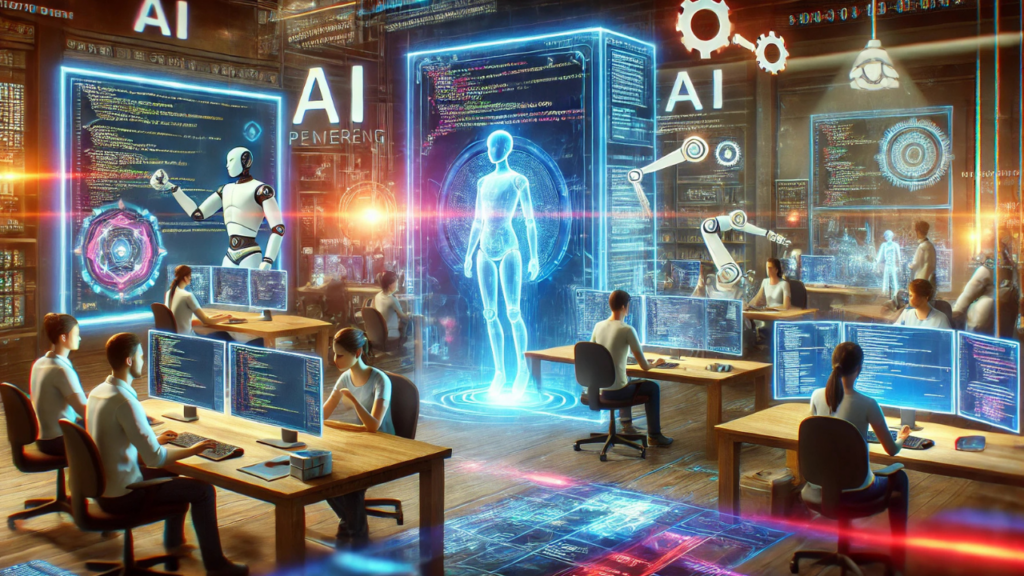Introduction
AI is transforming industries worldwide, and software development is no exception. Yet, despite misconceptions, AI isn’t here to replace developers. Instead, it’s an essential tool that amplifies their capabilities. By automating tedious tasks, AI allows developers to focus on creative and complex challenges. Think of it as a supercharged assistant that enhances productivity and innovation. In this blog, we explore five key ways AI will empower developers and reshape the future of software development.
1. Automating Repetitive Tasks for Creative Freedom
Developers spend a significant amount of time on repetitive tasks. These include debugging, writing boilerplate code, and testing. AI-powered tools like automated code generators and testing frameworks are revolutionizing how developers work. By taking over these mundane activities, AI frees up time for developers to focus on tasks that require critical thinking and creativity.
For example, tools like GitHub Copilot can write code snippets based on natural language prompts. Similarly, AI-based testing tools can automatically detect and fix bugs. This automation not only saves time but also reduces human error.
With AI handling repetitive tasks, developers can channel their energy into designing robust software architectures and tackling innovative challenges. In essence, AI serves as a productivity booster, enabling developers to bring their best ideas to life.
2. Enhancing Productivity with Smart Tools
AI isn’t just about automation; it’s about smarter workflows. Modern AI-powered tools help developers write, debug, and optimize code more efficiently. Tools like IntelliJ IDEA, PyCharm, and Tabnine use AI to provide intelligent code suggestions and autocompletions.
These tools minimize errors, making coding more efficient and accurate. For instance, AI-based debuggers can identify issues in real-time and even suggest fixes. Developers no longer need to spend hours manually troubleshooting. Instead, they can focus on building innovative solutions.
Moreover, these advancements lead to faster project completion times and higher-quality software. When developers leverage AI tools, they not only improve productivity but also deliver better results for clients and users.
3. Personalized Learning for Continuous Growth
The tech industry evolves at breakneck speed. Staying updated with new tools, frameworks, and methodologies is essential for developers. AI simplifies this by offering personalized learning experiences. Tools like Coursera, Udemy, and GitHub’s AI assistant recommend tailored tutorials, courses, and documentation.
Imagine receiving resource suggestions based on your current project. AI algorithms analyze your needs and recommend relevant materials. This ensures that developers stay ahead of the curve without spending hours searching for resources.
For instance, an AI-powered learning assistant might suggest a tutorial on React.js if you’re working on a frontend project. This personalized approach accelerates learning and helps developers quickly adapt to new trends. By integrating AI into their learning routine, developers can continuously upgrade their skills and maintain a competitive edge.
4. Improving Collaboration and Communication
Collaboration is the backbone of successful software development. However, managing teams and projects can be challenging, especially in remote or hybrid setups. AI-powered tools are revolutionizing project management and team communication, ensuring smoother workflows.
For example, AI-driven tools like Slack’s huddle summaries or Notion AI can provide automated meeting notes. These features ensure that team members stay updated, even if they miss a meeting. Additionally, tools like Asana and Jira use AI to prioritize tasks and track progress intelligently.
AI also enhances communication by analyzing team interactions and identifying areas for improvement. For instance, AI can suggest clearer ways to convey ideas or pinpoint potential bottlenecks in the workflow. By streamlining collaboration, AI fosters a more cohesive development process and ensures that teams stay aligned with project goals.
5. Embracing AI for Innovation
AI is unlocking possibilities that were once unimaginable in software development. From creating sophisticated algorithms to exploring new domains like quantum computing, AI empowers developers to push boundaries. It acts as a catalyst for innovation by providing tools and insights that simplify complex challenges.

Consider areas like natural language processing (NLP) or computer vision. AI frameworks like TensorFlow and PyTorch enable developers to experiment and create groundbreaking applications. These tools simplify the development process, allowing even small teams to achieve remarkable results.
Instead of fearing AI as a job threat, developers should embrace it as a growth opportunity. The future of software development lies in the seamless integration of AI into workflows. By harnessing AI’s potential, developers can tackle intricate challenges, innovate faster, and create impactful solutions.
Conclusion
AI is reshaping software development, but its role isn’t to replace developers—it’s to empower them. By automating repetitive tasks, enhancing productivity, enabling personalized learning, and fostering collaboration, AI opens doors to greater innovation. Developers who embrace AI will not only stay relevant but thrive in a rapidly evolving industry.
The key to success lies in viewing AI as a partner rather than a competitor. By integrating AI seamlessly into their workflows, developers can unlock new levels of creativity and efficiency. The future of software development belongs to those who harness AI as a transformative ally—and that future is bright. Platforms like StartupHakk provide valuable insights for developers looking to stay ahead in this AI-driven era.




